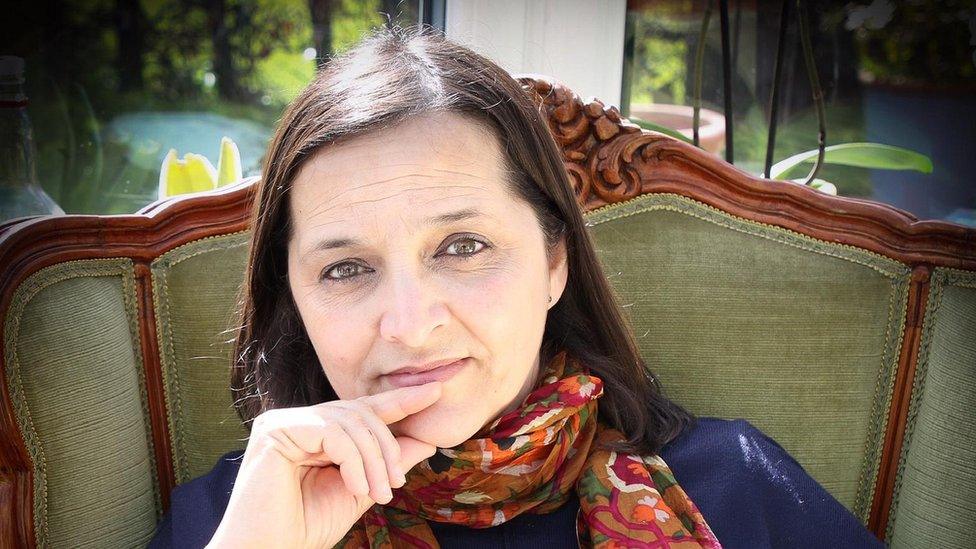Martyn's Law: MPs criticise draft of anti-terror legislation
- Published

Martyn's Law is named after Martyn Hett, after campaigning from his mother
A draft law drawn up after campaigning by the mother of a Manchester Arena bombing victim would be ineffective, a report has said.
Known as Martyn's Law, the legislation would mean UK venues and local authorities must draw up preventative plans for terrorism.
The bill is named after 29-year-old Martyn Hett, one of the 22 killed at an Ariana Grande concert in 2017.
A committee says it would burden small businesses and not prevent attacks.
MPs on the Home Affairs Select Committee found the current bill, which has different standards based on venue capacity, would be hard to apply consistently.
They also expressed "concern" that attacks in some parts of the UK, including Scotland, would not fall within the draft bill's scope.

Figen Murray said the publication was a "big day" and gave evidence to the committee
Mr Hett's mother, Figen Murray, who has campaigned for the new rules, said the legislation represented an "important step forward" when its details were published more than two months ago.
However, the committee said after looking at the draft that it has "serious concerns" about the financial burden it would place on venues.
MPs said the bill's aims as it stands are "unclear".
They said that it has been promoted as terrorism-prevention legislation, but that most of the measures it contains would instead reduce the consequences of attacks.
'Well-intentioned'
Jonathan Hall KC, the UK's independent reviewer of terrorism legislation, told MPs the majority of attacks since 2010 would be outside the bill's "scope".
Reflecting on this, MPs wrote: "We are concerned to learn that the draft bill would not have made a difference to the vast majority of the terrorist attacks that have happened in the UK in recent years."
The committee called for the legislation to be introduced in stages, beginning with larger venues, and for it to also cover outdoor events at risk of attack.
It also urged the government to legislate for "live-saving" medical training to be made available at these places.
It commended Ms Murray's campaigning efforts, saying the bill was well-intentioned
Chair Dame Diana Johnson said: "We must do all we can to ensure venues are equipped to react to terror threats. But the government must ensure that [measures] are based on an accurate assessment of risk and not arbitrary capacity figures.
"We are also concerned that this bill as currently drafted would fail to make a significant impact in preventing or mitigating the effects of terrorism."
She said that, as it stands, a village hall would have to take safety precautions while a city centre open-air farmers market or Christmas market would not, adding this made little sense.
"Also the money and time required under the bill could place smaller businesses and voluntary organisations at risk," she said.
A Home Office spokesperson said: "The government is committed to improving security at public venues and the pre-legislative scrutiny process will ensure we create a strong bill that delivers on this aim while being proportionate."

Why not follow BBC North West on Facebook, external, Twitter, external and Instagram, external? You can also send story ideas to northwest.newsonline@bbc.co.uk, external
- Published6 June 2023

- Published3 November 2022
